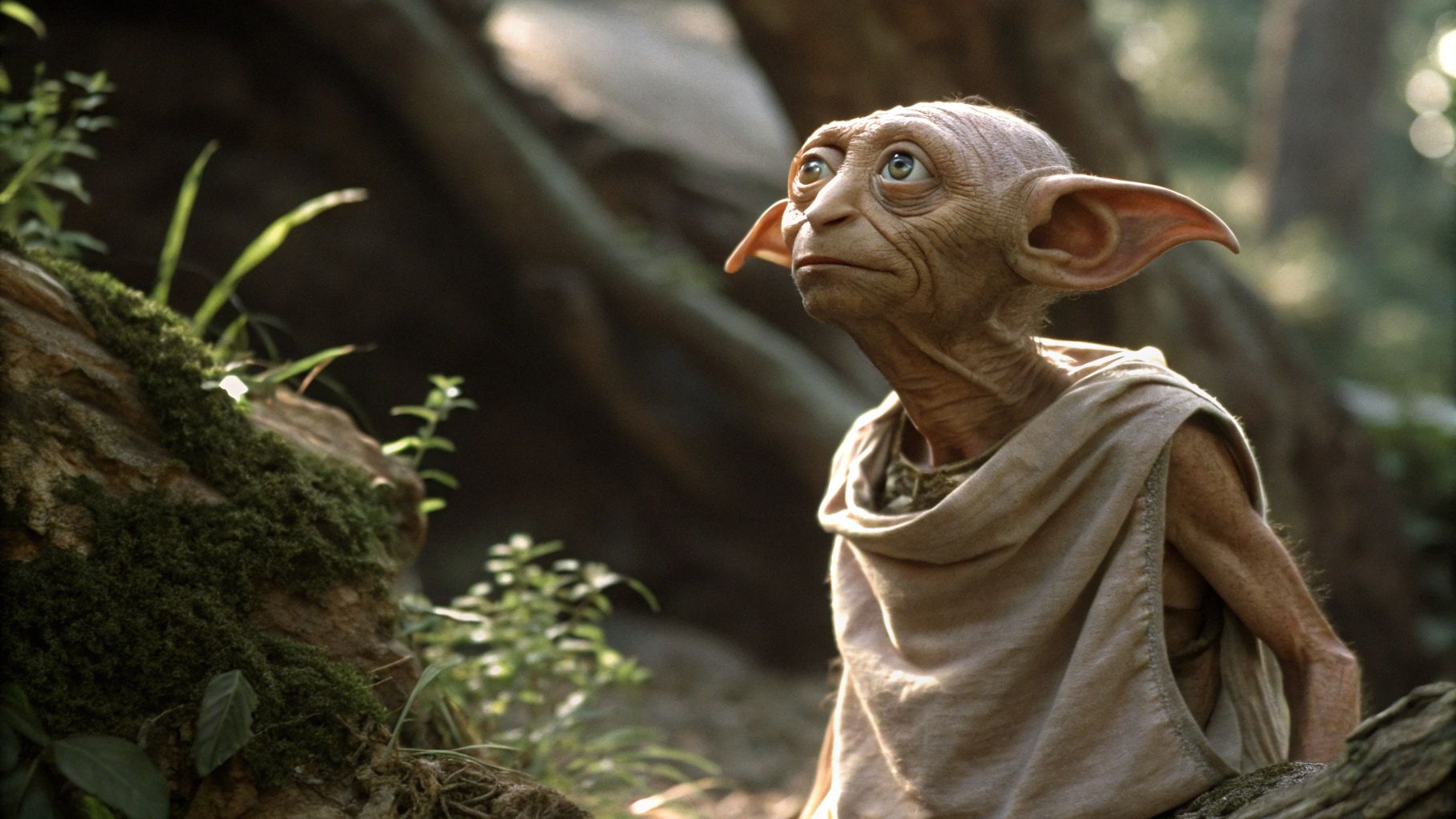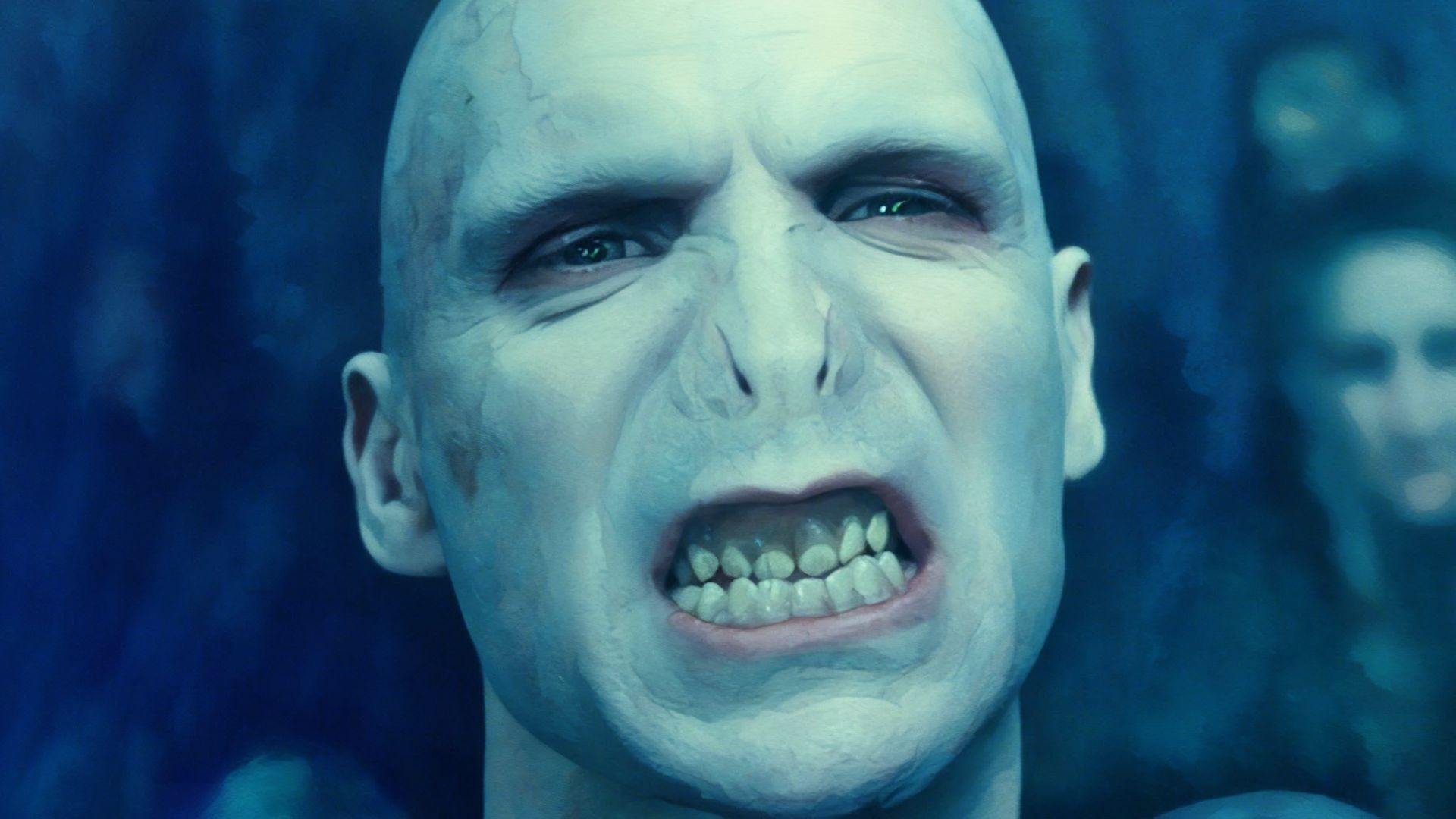In the grand tapestry of fantasy heroes, Frodo Baggins stands out not because of his might, but because of his meekness. While others charge into battle with banners raised and blades drawn, Frodo begins his journey with trembling hands and reluctant feet. He’s not a warrior, a prince, or a prophesied savior—he’s a quiet Hobbit with soft eyes, muddy boots, and a heart full of questions. And yet, when the fate of Middle-earth hangs in the balance, it’s Frodo who steps forward to carry the burden no one else can. His story isn’t one of conquest, but of courage. Not one of dominance, but of endurance. In a world filled with towering heroes and thunderous wars, Frodo’s quiet resilience becomes the most powerful force of all. This is the story of a small being who walked into legend—not by force, but by faith.
The Most Unlikely Chosen One
When we think of heroes, we often picture warriors in gleaming armor, charging into battle with swords raised high and thunder in their footsteps. What we don’t picture is a soft-spoken, curly-haired Hobbit from a peaceful village who’s never left home, doesn’t like adventure, and would much rather be reading a book under a tree. And yet, Frodo Baggins became the linchpin of one of the greatest stories in fantasy history. With no superhuman strength, no magical powers, and absolutely no desire for glory, Frodo represents a different kind of hero—the kind that reminds us that even the smallest person can change the course of the future. From the moment Gandalf places the One Ring in his hand, Frodo’s journey begins—not as a warrior, but as a symbol of quiet resilience.
Shire Roots: The Power of Home
Frodo’s strength doesn’t come from battle experience or royal blood—it comes from his love for the Shire. His deep connection to his home is what makes him so resistant to the Ring’s corruption, at least at first. The rolling green hills, the comfort of Bag End, the laughter of friends, and the simplicity of Hobbit life create a foundation of peace that Frodo carries with him, even into the darkest corners of Middle earth. This rootedness becomes his compass, guiding him through unimaginable danger. The contrast between the Shire and Mordor makes his sacrifice even greater. Frodo leaves behind the only life he’s known to protect it—not because he wants to, but because he must.
A Hero Who Walks, Not Rides
Frodo’s journey is a long, exhausting walk. He doesn’t charge in on a noble steed or fly in on the back of an eagle (at least, not until the very end). He trudges. He stumbles. He bleeds. His heroism isn’t flashy—it’s measured in every painful step toward Mount Doom. That’s what makes his arc so relatable. Frodo doesn’t get quick victories. He endures. He makes tough choices and pays the price for them. His is a slow, grueling brand of courage, the kind that keeps going even when the odds are crushing and the reward is uncertain. In a world full of sword-swinging saviors, Frodo quietly climbs the mountain.
Temptation and the Battle Within
What elevates Frodo above most fantasy protagonists is his internal struggle. The Ring is not just a magical object—it’s a test of willpower, a source of corruption, a whispering weight around his neck. Frodo is not immune to its effects. He feels the Ring’s pull from the moment he touches it. He’s haunted by its power, tempted by its promise, and slowly eroded by its influence. And yet, he presses on. The brilliance of Frodo’s character lies in the way he fights battles most will never see. While others clash swords in epic wars, Frodo fights inside his own mind—and that quiet, invisible war is more harrowing than any physical fight.
The Strength of Vulnerability
Frodo isn’t fearless. He isn’t stoic. He cries. He screams. He falters. But none of that makes him weak—it makes him real. His vulnerability is part of his strength. It’s what allows him to accept help when he needs it. It’s what makes his bond with Sam so powerful. Frodo doesn’t pretend to be invincible. He lets himself break, and then he picks up the pieces and continues. That honest portrayal of fear, pain, and perseverance is what transforms him from a character into a symbol. Frodo shows us that bravery isn’t about having no fear—it’s about continuing even when the fear overwhelms you.
Friendship That Carries You
The friendship between Frodo and Samwise Gamgee is the emotional core of The Lord of the Rings, and it’s a massive part of what makes Frodo such a compelling underdog hero. Frodo doesn’t go it alone—he’s supported, encouraged, and literally carried by Sam. Rather than undermining Frodo’s heroism, this dependence enhances it. It shows that heroes need help. That you don’t have to be solitary to be strong. Frodo never treats Sam like a servant. He treats him like a brother. Their journey proves that the strongest friendships aren’t forged in comfort, but in fire. And in the end, it’s not Frodo’s might that gets the Ring to Mount Doom—it’s his friendship with Sam.
The Weight of the Ring
Frodo’s burden is not metaphorical—it’s real, physical, and soul-crushing. The Ring isn’t just a plot device—it’s a parasite that feeds on Frodo’s spirit. It gets heavier the closer he gets to Mordor, a perfect symbol of how darkness grows when left unchecked. Frodo carries that weight until he physically can’t anymore. He loses his innocence, his joy, and almost his sanity. He doesn’t emerge from Mount Doom victorious in the traditional sense—he survives. And sometimes, survival is the victory. Frodo doesn’t get the girl. He doesn’t become king. He doesn’t return to the Shire the same Hobbit. He gives everything, including pieces of himself, to save the world. That kind of sacrifice is the stuff of true legends.
Small Victories, Big Heart
Throughout the trilogy, Frodo’s victories are subtle. He doesn’t slay dragons or command armies. His triumphs come in quiet moments—a choice not to wear the Ring, a refusal to give in to Gollum’s lies, a small act of kindness in a cruel world. These moments, while small on the surface, ripple outward. They influence those around him. They shape the story. Frodo proves that heroism isn’t always about scale—it’s about impact. His small victories add up to a monumental achievement. And it’s precisely because they’re so hard-won that they feel so meaningful.
The Moment of Failure—and the Triumph in It
Frodo’s story takes a surprising turn at the very end. After all his struggle, all his pain, all his resolve, he fails. Standing at the very edge of the Crack of Doom, Frodo claims the Ring for himself. It’s a shocking moment—but also a deeply human one. No one could endure that kind of burden forever. And yet, from that failure comes redemption. Gollum, the creature who once mirrored Frodo’s potential fate, bites off the Ring along with Frodo’s finger and falls into the fire. Frodo’s failure doesn’t erase his heroism. If anything, it highlights it. Because the true measure of his journey isn’t perfection—it’s endurance. The fact that he made it that far is, in itself, miraculous.
The Wounds That Don’t Heal
One of the most poignant aspects of Frodo’s story is what happens after the Ring is destroyed. He doesn’t get a fairy tale ending. He returns home, but he’s not the same. The Shire feels smaller. The laughter feels distant. Frodo is haunted by what he experienced—both physically and emotionally. That’s a bold and beautiful truth that Tolkien doesn’t shy away from: some wounds don’t heal. Frodo’s journey is about more than saving the world—it’s about the cost of doing so. And it’s in that cost that his legend becomes even more powerful. He’s a hero who paid the price, and who continues to pay it even after the victory.
The Silent Legend
Frodo doesn’t crave attention. He doesn’t boast. While Aragorn is crowned king and celebrated, Frodo quietly writes his story in a red-bound book and eventually sails away to the Undying Lands. His humility is part of his greatness. Frodo doesn’t need a statue or a parade. His impact speaks for itself. He proves that the most legendary heroes aren’t always the loudest—they’re the ones who do the right thing when no one’s watching. The ones who sacrifice without expecting praise. Frodo’s silence is a legacy in itself. It whispers instead of shouts—and that whisper echoes through all of Middle-earth.
The Ringbearer’s Legacy
Frodo’s legacy endures because it’s grounded in truth. He wasn’t the strongest, the smartest, or the most skilled. But he was willing. And that willingness changed the world. His story teaches us that you don’t have to be extraordinary to make a difference. You just have to take the first step, keep going when it gets hard, and accept help along the way. Frodo Baggins is the ultimate underdog hero not because he was destined for greatness, but because he walked into the darkness despite not being ready—and came out forever changed.
The Hero in All of Us
In the end, Frodo’s story isn’t just about magic or adventure. It’s about heart. It’s about choosing to do what’s right, even when it hurts. It’s about carrying a weight that no one sees and still moving forward. Frodo Baggins is the ultimate underdog hero because he represents the heroism that lives in quiet moments, in small kindnesses, in silent strength. He reminds us that courage isn’t always loud, that victory isn’t always clean, and that sometimes the most powerful thing you can do is simply keep going. Frodo didn’t need to wield a sword to change the world—he just needed to walk. And that walk turned into a legend that will live on forever.




